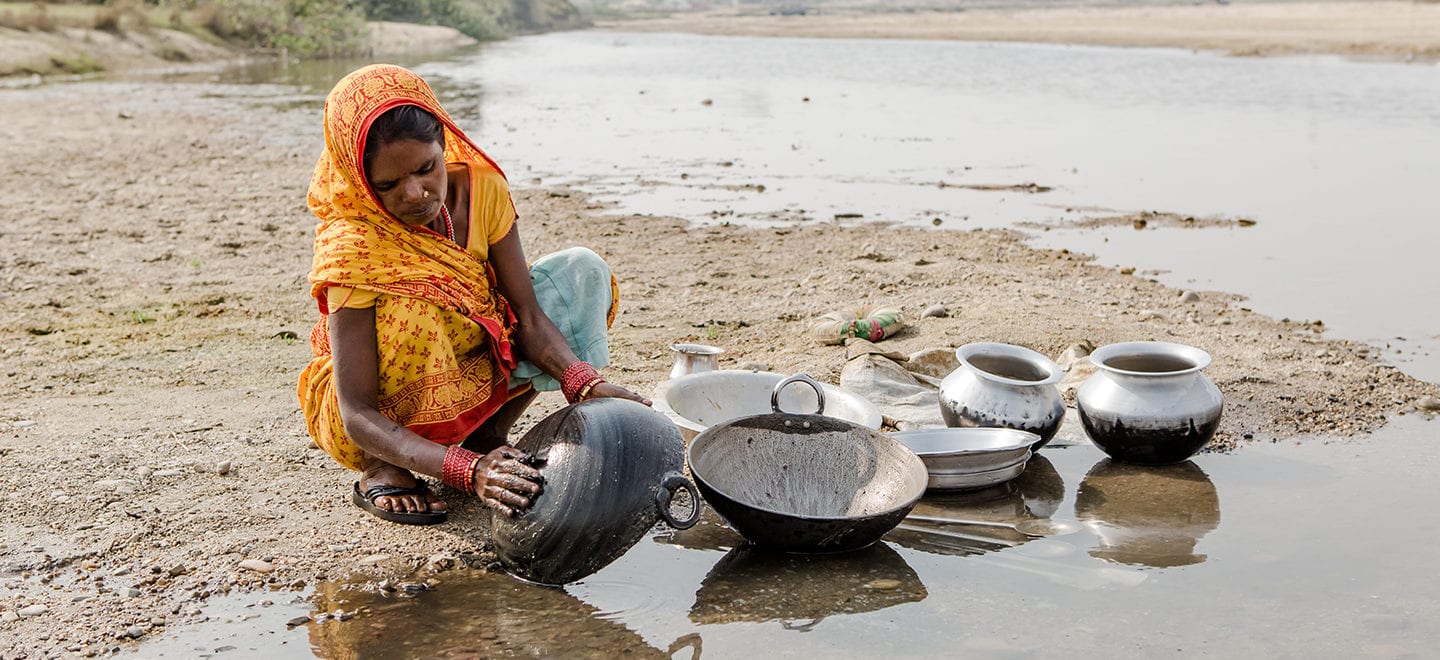Trump’s pick for World Bank lead, David Malpass, continues a trend of nominating cronies to agencies they seek to destroy.
To say that my relationship to this 73-year-old financial institution has been bumpy might be an understatement. And it looks like it won’t be getting smoother any time soon.
Today, Donald Trump announced his nominee for World Bank President, and it’s none other than David Malpass, the Under Secretary of the Treasury for International Affairs. Yes, the same Malpass who was the chief economist at Bear Stearns until it collapsed in 2008.
Like many of Trump’s nominees, Malpass is a vocal critic of the institution he’s about to lead. Like many of Trump’s nominees, Malpass is not our pick.
Pushing for Greater Accountability at the World Bank
Long before I came to ActionAid, I led the U.S. arm of the international Jubilee Movement – an incredible movement that called for the cancellation of illegitimate debts of developing countries and for the end to the abuse of power of International Financial Institutions that used debt as leverage to impose austerity policies.
In addition to my day job, I was one of those anti-globalization activists that challenged what we saw as a system of global apartheid, where race and place determined a person’s access to wealth, power and basic human rights. The elites in rich and powerful countries controlled, and continue to control, major global decision-making bodies like the World Bank to preserve a system that fuels inequality.
I became visible enough in my advocacy at the World Bank and the International Monetary Fund that I received a letter barring me from the institutions for five years. Today, however, I sit on the Steering Committee of an initiative called the Global Agriculture and Food Security Program, representing Northern Civil Society. And you guessed it: the World Bank is the trustee for this multi-stakeholder fund – the first of its kind to welcome farmers’ organizations and agriculturally focused civil society organizations to have equal seats at the table with governments, foundations, countries receiving funds, and other decision-makers.
I credit the movement-building work challenging the International Financial Institutions for this genuine effort on the part of the World Bank to improve its relationship with civil society actors and become more accountable to the poorest people it claims to serve.
Given that the World Bank is a global organization, it is important to acknowledge how problematic the tradition is that the U.S. always gets to nominate who heads the Bank. (That’s a whole other, highly relevant topic that falls outside the realm of this blog post.) I remain a critic of the International Financial Institutions and the broader international development sector of which my organization, ActionAid, is a part. That’s why I work with my colleagues every day to reshape how we do development work. We are here for the kind of international development that is locally led, the kind that lifts up people and strengthens local economies instead of uprooting them. The kind that doesn’t preserve the toxic combo of Western imperialism and White saviorism, where development workers claim to know what is “best” for people around the world and their leaders – and impose policies without accountability to the people who will be most affected, all under the guise of “saving the world”.
David Malpass v. International Cooperation
The reality that Malpass and I both can be critical of this institution doesn’t mean we are seeking to build the same change. There is a difference between international cooperation and intervention or imperialism. International cooperation to achieve global development goals, something the World Bank has been laudably striving for, is a good thing in the world. Many activists and advocates fighting for global equality want to put the poorest and most marginalized people at the center of international development.
But when Malpass raises concerns about “the rapid increase in globalism”, it’s because he wants the U.S., one of the wealthiest and most powerful countries in the world, to continue benefiting disproportionately from systems of trade, investment and global development schemes. He has shown little regard for food crises happening around the world, proven by his efforts to pull the U.S. out of the Global Agriculture and Food Security Program just months after assuming office at the Treasury.
The program is an example of a World Bank-supported fund that has the potential to channel more than a billion dollars towards achieving the goal of zero hunger. It’s made a huge impact so far, in no small part because of the active engagement and inclusion of the smallholder farmers most affected by the way the program is designed and implemented. It has reached more than 8 million people in 41 countries. Most of the participants are farmers growing food on small plots of land, and a third of them are women. As a member of the Steering Committee for this program, I have seen its impact on local farmers who produce the majority of the world’s food but often struggle to provide enough food for their families. It’s an extremely efficient multi-stakeholder fund, with 93% of available programs going into grants to the poorest countries in the world.
So, despite my critiques of the World Bank, I am not abandoning it. We are constantly pushing for the institution to promote and follow the leadership of the people who are directly affected by its projects, an effort that needs to continue even if Malpass takes the helm.
